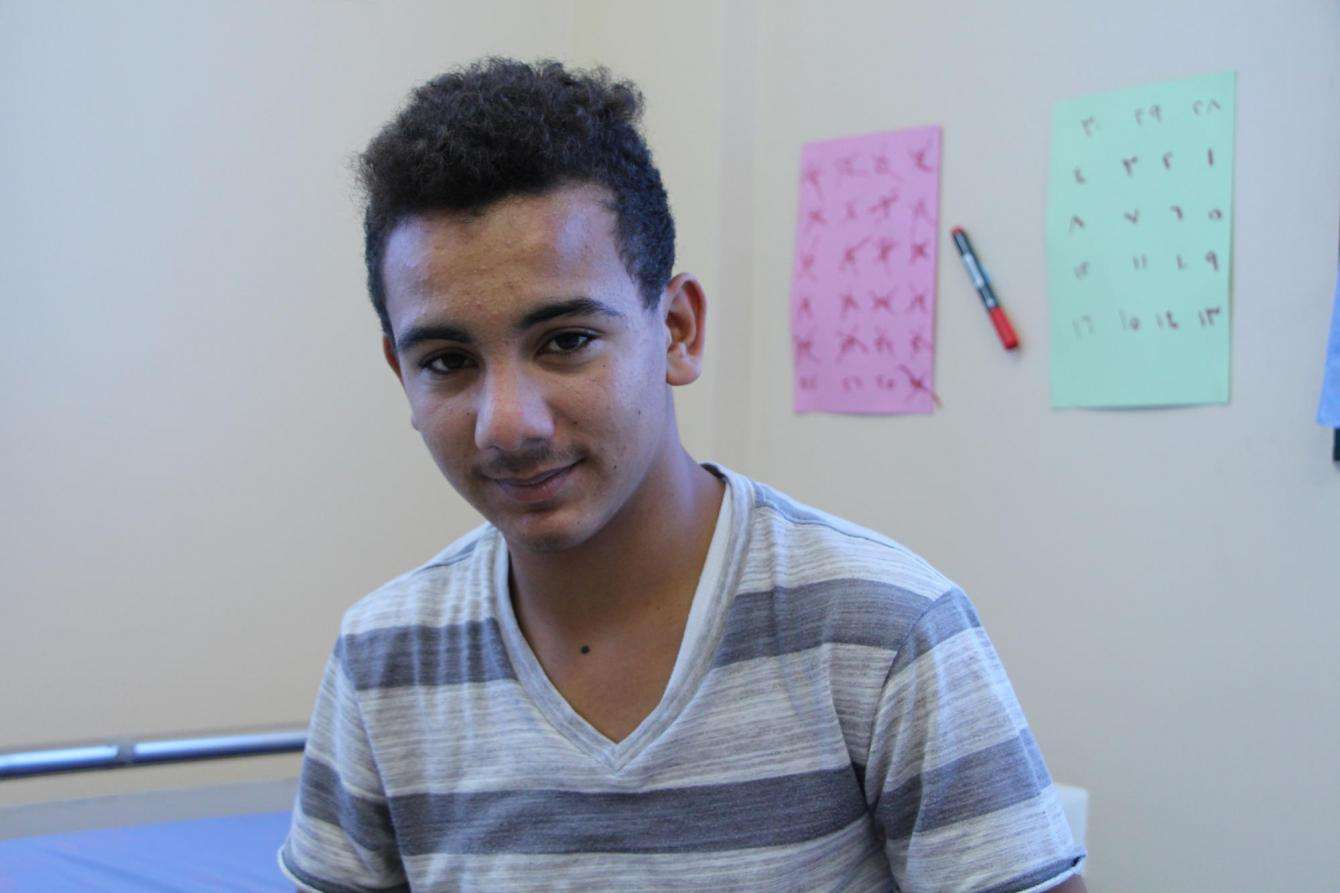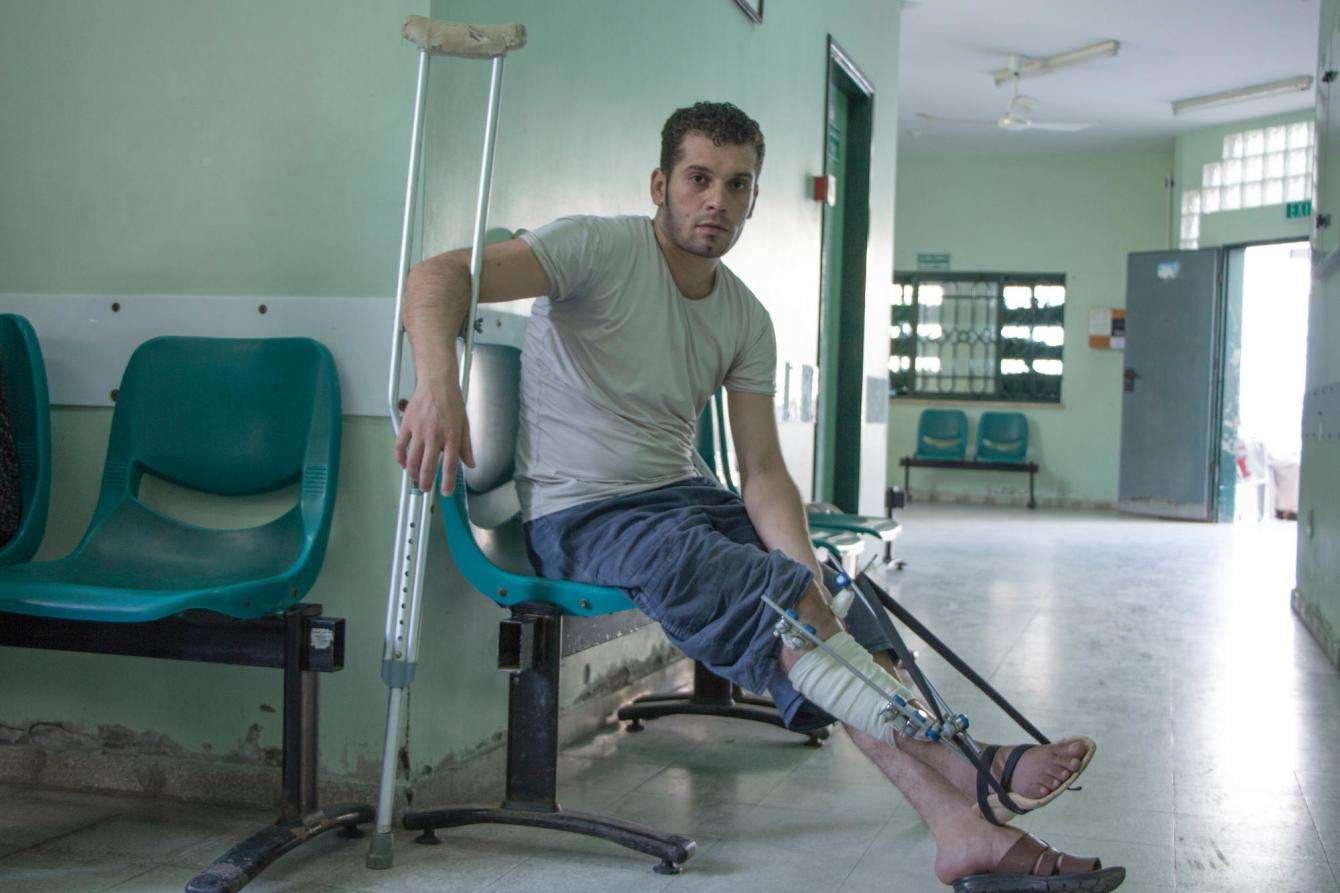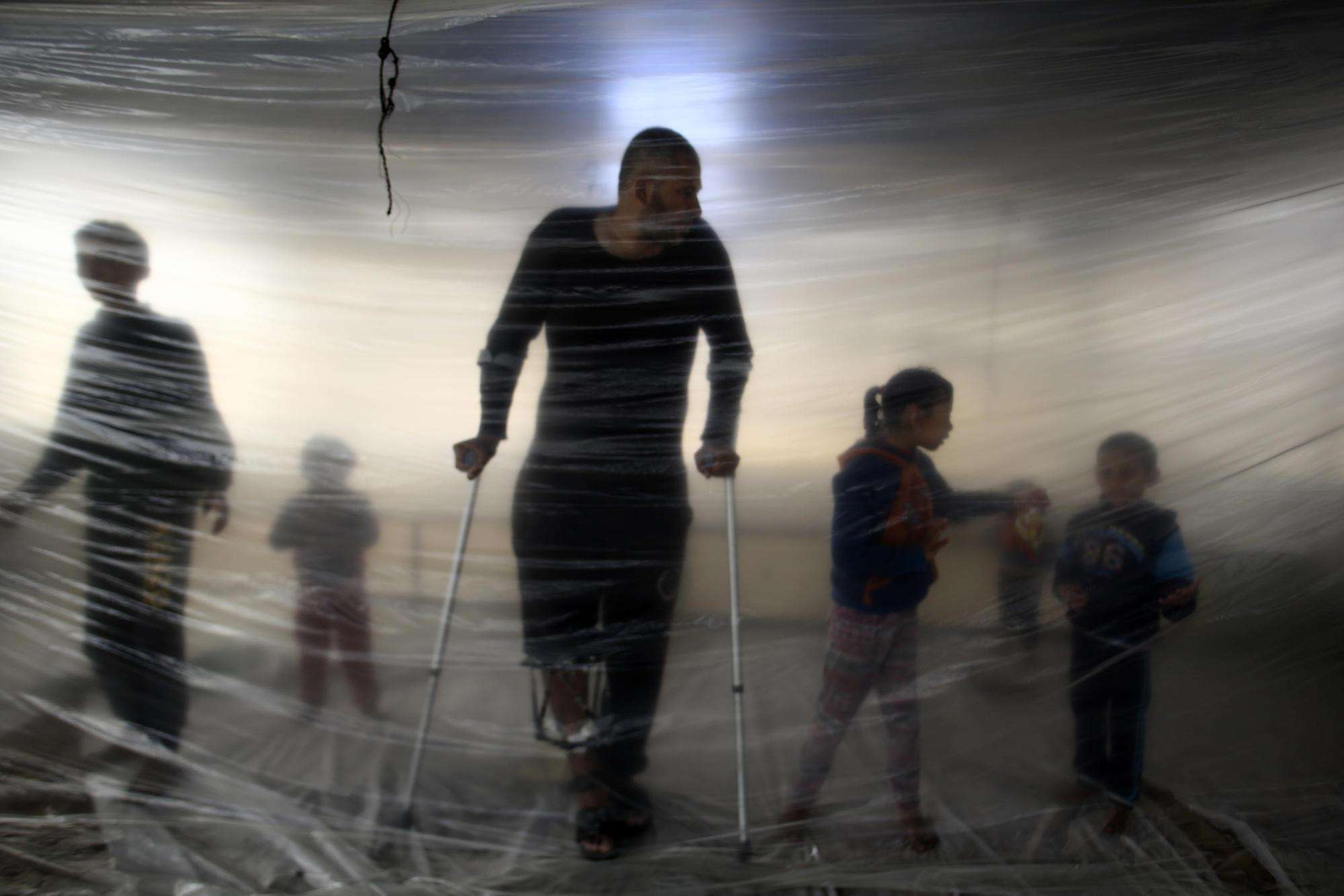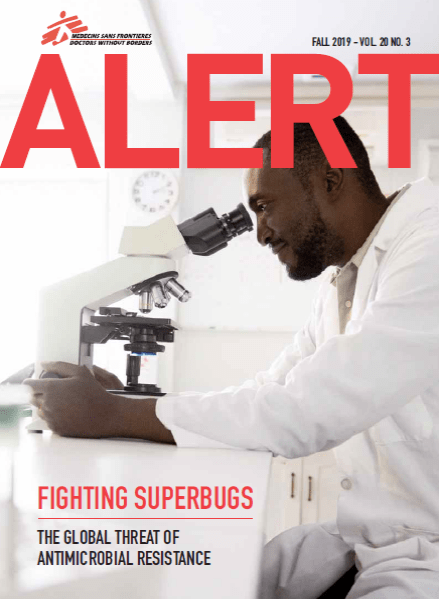When Ayman woke up, he was lying in a hospital bed in a stark and unfamiliar room. He had been admitted to the Doctors Without Borders/Médecins Sans Frontières (MSF) hospital in Gaza after he was shot during a protest along the boundary fence with Israel. The last thing he remembered was being prepped for surgery. “I didn’t know about the infection in the bone until I came here,” he said. “I came out of the operation and found myself in isolation.”
Ayman is one of the more than one thousand people in Gaza suffering from severe bone infections after being shot by the Israeli army during demonstrations over the past year and a half, according to MSF estimates. The demonstrations, which began on March 30, 2018, have become a weekly routine of bloodshed. More than 7,400 Palestinians have been injured by live ammunition, with around half suffering from open fractures, in which there is an open wound near a broken bone.
“When you have an open fracture, you need lots of things to get better: different types of surgery, physiotherapy, and avoiding the wound becoming infected, which is a high risk with these types of injuries,” explained Aulio Castillo, MSF’s medical team leader in Gaza. “Unfortunately, for many of our patients who have been shot, the severity and complexity of their wounds—combined with the severe shortage of treatments for them in Gaza—means they have now developed chronic infections. What’s more, we’re finding in preliminary testing that many of these people are infected with antibiotic-resistant bacteria.”

Few options to treat complex wounds
Gunshot wounds by their very nature are prone to infection. With a dirty foreign body breaking the skin, it is vital that the wound be cleaned to reduce the risk of infection. With complex injuries such as those suffered by protesters in Gaza—including huge wounds and splintered bones that are hard to treat—many wounds stay open for long periods, making the risk of infection drastically higher.
High rates of antibiotic resistance in Gaza complicate the treatment of these infections. Bacteria have developed the ability to withstand many antibiotics commonly used to treat them. This often happens when antibiotics are overused, whether in the community or in the environment—a growing problem worldwide.
Antibiotic resistance makes the already difficult task of treating people like Ayman much harder. To get better he needs antibiotics, but with the usual option useless against the resistant infection, he has to take a stronger type that carries a higher risk of side effects. These “heavy-duty” antibiotics are also much more expensive.

The effects of isolation
To prevent the spread of resistant bacteria within the hospital and to protect other patients, Ayman has to be isolated in a single room while he undergoes treatment. Everyone entering the room must wear protective clothing and clean their hands. His period of isolation will last a punishing six weeks.
While patients in isolation are not confined—they can leave their rooms if they wear protective gowns—the experience is still extremely difficult. “I feel like I’m in prison,” Ayman said. “I don’t like to be by myself. I could stay one year in a normal ward, but here. . . All I like to think about when I’m here is leaving.”
Because isolation can be so difficult for patients like Ayman, MSF social workers and counselors are on staff in the hospitals to support them during treatment. “After people hear that they must be in isolation they are shocked. They can even start crying,” said Amal Abed, an MSF social worker. “They don’t understand. They think that infection in the bones means certain amputation.” The psychosocial support team takes the time to sit with the patients and explain their condition to them— and why it is important they follow the precautions.
Forging connections between the patients can also help them to cope with the challenges of isolation. “We have to follow precautions, but we like to get them out of the rooms to sing, dance, or do an educational session with them and other patients,” Abed explained. “It’s more interesting when education is not done alone: other people can join in with their comments; start a conversation.”
Unique challenges
Treating these infections would be challenging anywhere in the world, but in Gaza it is particularly difficult. With a health system reeling from the effects of more than a decade of Israeli blockade, Palestinian political infighting, and Egyptian restrictions on movement, MSF is working to provide care that would otherwise not be available.
“We have worked with the Ministry of Health to upgrade a laboratory so that it can analyze bone samples, a crucial part of correctly diagnosing these bone infections and knowing which antibiotics will work,” said Castillo, the medical team leader.
It is the first laboratory in Gaza equipped to do this analysis. Previously, each bone sample had to be sent to labs in Israel for testing. At the MSF hospital laboratory, the staff uses small samples of infected bone to grow the bacteria in Petri dishes. Different chemical bases let different types of bacteria grow, showing which types are present. Next, their sensitivity to different antibiotics is measured. Through these tests, our teams learn which infections they are dealing with— and the best tools to fight them.
“Treating these infections is a massive undertaking,” said Castillo. “We have upgraded this laboratory, opened two hospital wards and are opening another. It places huge demands on us in terms of the specialist staff we need, the drugs we have to supply, and the space we need in order to treat these infections. It’s hard but we’re trying our best to offer these people the surgery and treatment they need.”
For now, Ayman waits, taking his antibiotics intravenously for four hours each day. The medical team carefully monitors his treatment to ensure that the drugs are working and not having any adverse effects. He talks fondly of the days before the bullet changed his life—how he and his friends used to spend time together at night, dancing and listening to music.
“I want to return to my work as a cake maker,” he said. To do that he’ll need further surgery, which he cannot undergo until he beats the infection. He is on a long and difficult road to recovery, moving toward an uncertain future.





